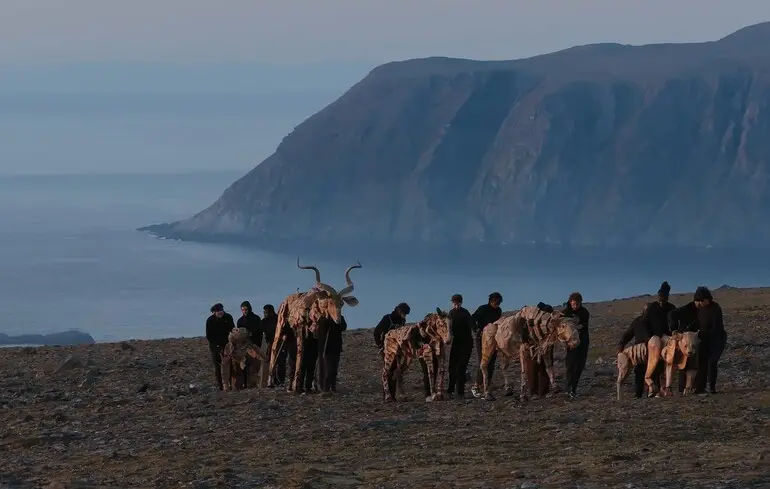From African Savannas to the Arctic Ice: Artistic Puppet Expedition Raises Climate Change Awareness

The artistic project called The Herds, brought to life by the creative team at The Walk Productions, has wrapped up an extraordinary 20,000-kilometer journey aimed at drawing global attention to the pressing issue of climate change.
Starting in the lush tropical forests of the Democratic Republic of Congo and traveling across Africa and Europe, this initiative culminated in the Arctic region of Norway.
Participants, individuals who operated life-sized animal puppets, symbolized the forced migration of wildlife fleeing devastating climate impacts.These puppets, crafted from recycled materials such as cardboard and plywood, depicted animals in a state of forced migration, engaging communities and raising awareness along the route.
Throughout the trek, over 50 public events were held across 11 countries, with around a thousand volunteers, specially trained in puppet art, actively participating.The project’s core approach was emotional rather than abstract: by engaging audiences emotionally through art, it aimed to foster a deeper understanding and urgent response to climate issues.
The puppets represented various wildlife species and were designed to symbolize the ecological impact of climate change globally.
The journey began in Congo, traversed African forests and European cities, and eventually arrived at the largest continental glacier in Europe, Jostedalsbreen, in Norway.
From there, the puppets traveled further to Nordkapp to witness the sunrise on August 1st.This initiative was created by the same team that in 2021 launched Little Amal — a 3.6-meter puppet of a refugee girl that traveled across Europe to highlight the refugee crisis.
Producer David Lan highlights that such projects aim to approach complex global issues through emotional connections rather than dry statistics.
Artistic director Amir Nizar Zuaabi emphasized that even if results are uncertain, attempting to create change through art remains essential.Recent re-evaluations of a prominent climate forecast—predicting a 62% reduction in global GDP due to climate disruption—reveal methodological errors in the original study, published in April 2024.
The revised analysis estimates economic losses to be approximately one-third of previous estimates, still significantly impactful but somewhat less catastrophic than initially predicted.

